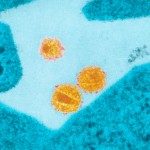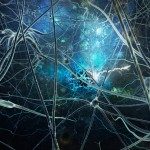Lien vers Pubmed [PMID] – 21716071
AIDS 2011 Sep;25(15):1843-53
OBJECTIVE: Interleukin-7 (IL-7) responses are impaired in CD4(+) T cells from HIV-infected patients, which may play a significant role in the loss of CD4(+) T-cell homeostasis. We set to investigate the nature of IL-7-dependent signaling defects in patients with progressive HIV-1 infection.
DESIGN AND METHODS: IL-7 signaling was compared in CD4(+) T cells from viremic patients with a viral load more than 10,000 copies of HIV RNA/ml (n = 23) and from healthy blood donors (n = 23). Phosphorylation of the transcription factor STAT5 on the regulatory serine S726 and the key tyrosine Y694 was monitored by intracellular flow cytometry. Phospho-STAT5 relocalization to the nucleus was analyzed by quantitative immunofluorescence imaging.
RESULTS: In control CD4(+) T cells, S726 phosphorylation was mostly constitutive and inducible by IL-7 to a limited extent (1.3x, P < 0.05). In contrast, phosphorylation at Y694 was highly inducible by IL-7 (12.6x, P < 0.0001). Progressive HIV infection led to hyperphosphorylation of both S726 and Y694 in naive CD4(+) T cells, with these changes correlating together (R = 0.66, P = 0.01). Quantitative image analysis revealed an impairment in the nuclear relocalization of both forms of phospho-STAT5 in patient cells (P < 0.005 for S726; P < 0.05 for Y694). The nuclear relocalization defect correlated with increased HLA-DR expression (R = 0.75, P < 0.01), suggesting a role for chronic immune activation in perturbed IL-7 signal transduction.
CONCLUSION: HIV infection perturbs IL-7 signaling by impairing the access of STAT5 to the nuclear compartment. This defect may contribute to the loss of CD4(+) T-cell populations in patients with chronically high immune activation.



